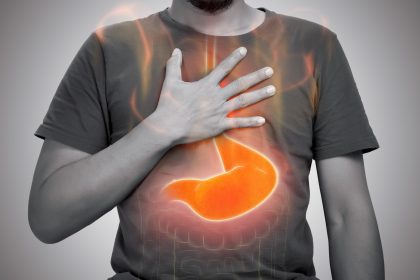Gastrointestinal health stands as a cornerstone of our holistic well-being, silently orchestrating bodily functions until an unexpected moment brings it into the spotlight. Have you ever encountered those seemingly harmless moments when a simple release of gas or an awkwardly-timed fart led to more than mere embarrassment or a foul odor? The truth might catch you off guard; these seemingly everyday bodily functions can sometimes serve as early indicators of deep-rooted issues concerning gastrointestinal health.
Our digestive system — an intricate network responsible for processing food, absorbing nutrients and discarding waste — often operates seamlessly. However, when gas or flatulence becomes more than an occasional occurrence and veers into discomfort, it can be a sign of an underlying gastrointestinal concern waiting to be addressed.
Understanding these signals and acknowledging their potential significance in the broader spectrum of our health is pivotal. Delving deeper into these bodily functions unveils a world where the seemingly ordinary might hold critical insights into our overall well-being.
Understanding Gastrointestinal Health
The gastrointestinal (GI) tract is a complex system responsible for digesting food, absorbing nutrients and expelling waste. Gas, also known as flatulence, is a normal byproduct of digestion. However, excessive or persistent gas accompanied by discomfort, bloating or changes in bowel movements can indicate an underlying gastrointestinal problem.
Common Culprits Behind Excessive Gas
Several factors can contribute to increased gas production or digestive issues. Dietary choices — such as consuming certain foods high in carbohydrates or artificial sweeteners — can lead to increased gas production. Moreover, conditions like irritable bowel syndrome (IBS), lactose intolerance, celiac disease or even bacterial overgrowth in the gut can manifest through excessive gas.
When Gas Becomes a Warning Sign
While occasional gas is a natural part of the digestive process, persistent or severe flatulence accompanied by symptoms like abdominal pain, diarrhea, constipation or unusual changes in bowel habits should not be ignored. These signs could be indicative of an underlying gastrointestinal condition that requires medical attention.
Seeking Professional Help
If you notice persistent gastrointestinal symptoms or changes in your bowel habits, it’s crucial to consult a health care professional. A gastroenterologist or primary care physician can conduct evaluations, tests or recommend dietary modifications to identify the root cause of the issue and provide appropriate treatment.
Tips for Promoting Gastrointestinal Health
Maintaining a healthy gut is essential for overall wellness. Incorporating these practices into your lifestyle can support better gastrointestinal health:
1. Balanced Diet: Consume a well-rounded diet rich in fiber, fruits, vegetables and probiotic-rich foods like yogurt to promote healthy gut flora.
2. Hydration: Stay adequately hydrated to support digestion and prevent constipation.
3. Regular Exercise: Engage in physical activity to aid digestion and promote overall health.
4. Mindful Eating: Chew food slowly and mindfully to aid digestion and prevent swallowing excess air, which can lead to gas.
5. Stress Management: Practice stress-reducing techniques like yoga, meditation or deep breathing exercises, as stress can impact gut health.
In the realm of bodily functions, passing gas often gets relegated to the realm of humor or discomfort. Yet, beneath this seemingly innocuous act lies a potential barometer for our gastrointestinal well-being. Never underestimate the significance of these bodily cues; when gas or flatulence transcends its typical behavior and brings along discomfort or distress, it’s your body’s way of hinting at potential underlying issues within the gastrointestinal system.
Listening to your body becomes imperative, particularly when accompanied by other symptoms that hint at digestive distress. Cultivating a lifestyle that champions a balanced diet, mindful eating habits, hydration, regular exercise and stress management can be transformative in nurturing your gut health.
Remember, a comprehensive approach to well-being encompasses every facet of health, including the often-overlooked digestive system. By remaining attentive to the signals your body sends and taking proactive measures, you not only support your gastrointestinal health but also pave the way for enhanced overall wellness.
This story was created using AI technology.

















